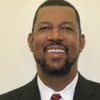Chris Glynn, president of Caterpillar University and outgoing chairman of the Central Illinois Workforce Board, presented The Global Workforce, focusing on how Caterpillar, Inc. is working to prepare for the workforce of the future. Mr. Glynn outlined the workforce challenges facing Caterpillar at this time:
- Emerging jobs require more and different skills
- Today’s products are more sophisticated
- Manufacturers are struggling to find qualified workers
- Attrition is high in Asia
- The global workforce is aging.
An additional challenge for the company is to ensure they have the right people in the right places at the right time. To accomplish this, Caterpillar began the task of developing a Global Workforce Plan, which includes identifying where people will be needed, how many will be lost due to attrition, what skills are being lost and what talent is needed to meet the corporation’s goals. The bottom line to ensure continued success in the future is to focus on continual learning, succession planning and putting values into action.
Ralph Martire, executive director of the Center for Tax and Budget Accountability, presented The State of Working Illinois: Opportunities and Challenges. Mr. Martire spoke on how education funding and wage gaps grow, putting Illinois well behind other states in the nation, even though it has the lowest tax burden in the Midwest and the third lowest in the country. Ralph’s presentation also highlighted the growing inequities of student performance and funding that exist in the school districts in Illinois.
Ray Uhalde, director of workforce development strategies at the National Center on Education and the Economy, presented Tough Choices, Tough Times, a report of the new commission on the skills of the American workforce. Mr. Uhalde focused on the need for comprehensive education reform, including preparing students for college earlier, better wages for teachers to attract the best talent to the profession and improving testing. The bottom line is education really matters more than ever for ensuring economic prosperity in the future.
Dr. Christopher Swanson, director of EPE Research Center, presented Jobs with a Future, connecting education and workforce in a global economy. Dr. Swanson reinforced the need to focus on education, as it dramatically improves life prospects. His organization has researched the effective graduation rates for each school district in the country. The average graduation rate for the nation for the 2003-2004 school year was 70 percent. During this same period, the graduation rate for the state of Illinois was 76 percent. The five-county central Illinois region ranged from 59 to 96 percent, with an average graduation rate of 81 percent. Dr. Swanson also presented research on the emerging job opportunities in the central Illinois region and graphically displayed the regional mismatch between where jobs are emerging and the educational performance of the emerging workforce.
In upcoming articles, we will explore some of these issues in greater detail and discuss the 2007 Talent Force 21 State of the Workforce Report which was distributed at the Forum. IBI

